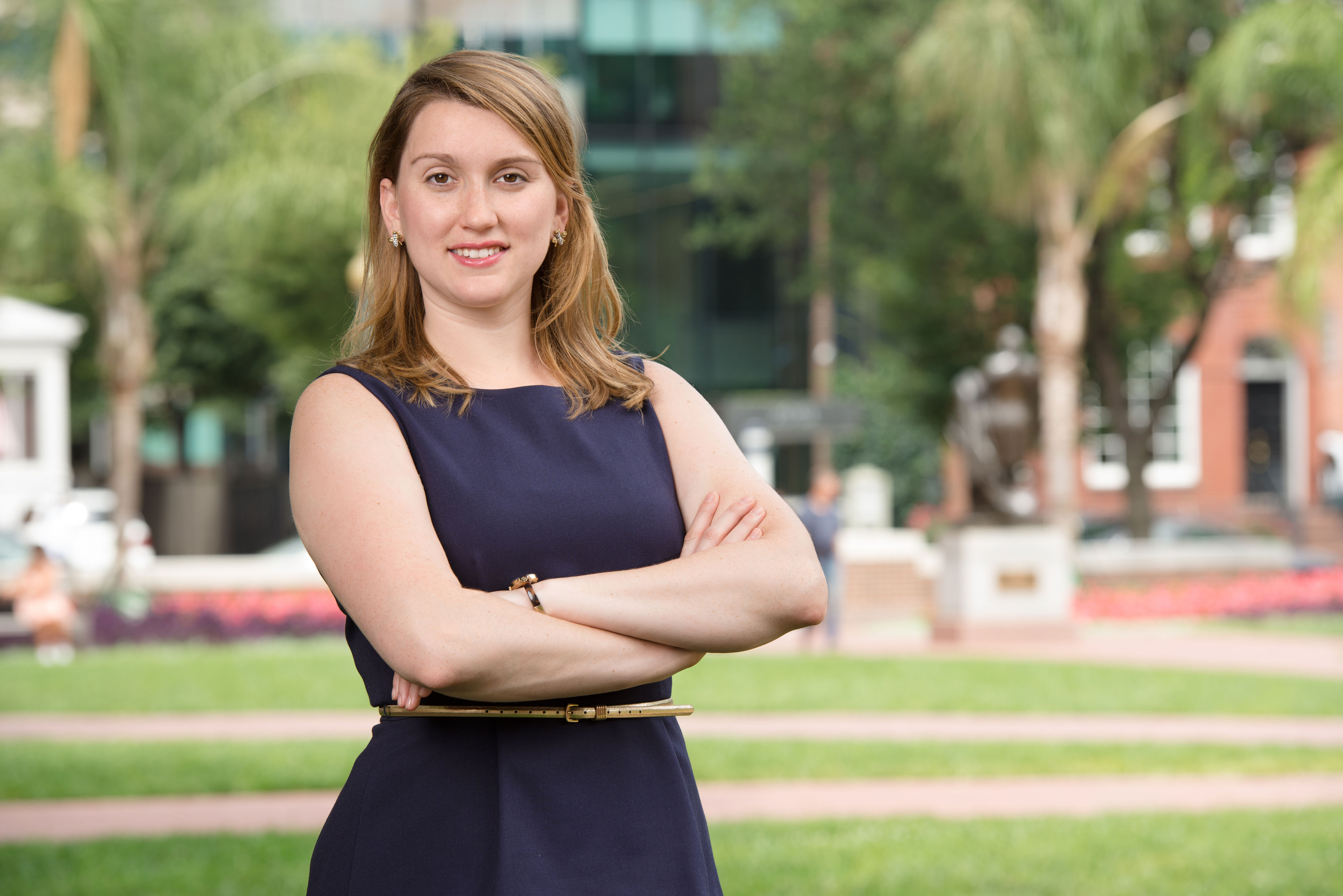As a George Washington University Law School student, 2015 commencement speaker Helen Clemens, JD ’15, took advantage of everything GW Law had to offer, especially its D.C. location. In addition to serving as President of the Student Bar Association, she was a summer law clerk for the National District Attorneys Association, a law clerk in the office of then-Senate Judiciary Chairman Patrick Leahy, and an intern in the section of Sexually Violent Predators in the Office of the Attorney General of Virginia. The top law student’s dream was to find post-graduation employment as a prosecutor. Despite Helen’s stellar resume and academic record, she had challenges securing a job as a prosecutor, one of the most competitive and scarce entry-level jobs in public service. To better position herself for her dream career, Helen took advantage of GW Law’s Pathways to Practice Program.
Despite modest improvements to the legal job market in recent years, law students across the country continue to face significant challenges in finding entry-level employment. In response, GW Law created the Pathways to Practice Program in 2011 to help recent graduates obtain real-world legal experience. The Pathways to Practice Program provides financial support to graduates who pursue unpaid fellowships for a year following graduation. The professional experiences the fellows gain help them obtain legal experience, build their professional networks, and secure permanent employment. The Pathways to Practice Program is one of the most generous bridge-to-practice programs in the country.
Through the Pathways to Practice Program, Helen worked at the Loudoun County Commonwealth Attorney’s Office as a Legal Fellow. The experience served as a springboard to her finding a permanent job with the Arlington County Commonwealth Attorney’s Office as an Assistant Commonwealth’s Attorney. “I know that the Pathways to Practice program is often questioned and challenged,” says Helen. “To be honest, as a 1L, I thought that I would never opt to use this program, because even I was judgmental of it. After having gone through the experience of wanting a job that requires you to be a licensed attorney prior to being hired, I can assure you that I believe my younger self was entirely off base,” she adds.
The GW Law program is remarkably effective at helping graduates succeed in this challenging job market; in fact, 94 percent of participants in recent years found employment outside of the Pathways Program within six months of completing the program. Close to 50 percent of these graduates found permanent positions with the employer that sponsored their Pathways fellowship or with employers that were similar to their Pathways sponsor (e.g., one fellow worked at a legal aid office and found a permanent position with a legal aid office in another market).
In 2016, the American Bar Association, the national accrediting body for American legal education, revised the definition of "long-term" positions. Under the new definition, most law school funded positions must now be reported as "short-term" positions. This is true for GW Law’s P2P program. “Even though we continue to offer fellowships to our graduates for a full year, which is the same level of support we have always provided, the ABA has now deemed these positions as ‘short-term,’” says Abraham Pollack, Associate Dean for Professional Development and Career Strategy. “In prior years, we had zero law school funded positions in the ‘short-term’ category. Now all GW Law P2P positions are reported in the ‘short-term’ category per the ABA's new instructions,” he says. Despite the ABA's reclassification, GW Law continues the Pathways to Practice program due to the professional benefits provided to recent graduates.
A requirement of the Pathways Program is that all fellows are provided with substantive legal work. GW Law’s program allows graduates to gain valuable experience with a diverse range of legal employers, including public interest organizations, government offices, judges’ chambers, and small law firms. For example, fellows have worked at the Robert F. Kennedy Center for Justice and Human Rights, U.S. Army JAG Corps, National Endowment for the Arts, and Senate Judiciary Committee.
“We are very proud of our program and the tremendous level of support that we provide to our students and are pleased with the job opportunities that are created through this program,” said Dean Blake D. Morant. “The student response has been overwhelmingly positive. They indicate the program provides excellent experiential opportunities that hone professional skills.”
The Pathways Program is just one example of how GW Law sets its graduates up for success as they complete their legal studies. GW Law also offers a number of opportunities to support students during their years of law school. The law school also has one of the largest externship programs in the country. GW Law students can receive course credit with supervision by leading legal practitioners and gain practical experience that will help jump-start their careers. Through the program, more than 600 students each year receive academic credit for relevant, hands-on externships at organizations.
The success of the Pathways Program can be measured by its many happy beneficiaries. According to Helen, “this program was largely beneficial to me, and is something I will remain thankful for, for the rest of my professional career. It is a reason that I will want to give back--I'd eventually like to donate to the school the amount that I received through this program and then some--so that future graduates will also have this opportunity available to them.”
For more information on the pathways to practice program or other fellowship programs for our graduates, please contact Abraham Pollack at apollock law [dot] gwu [dot] edu (apollack[at]law[dot]gwu[dot]edu).
law [dot] gwu [dot] edu (apollack[at]law[dot]gwu[dot]edu).


